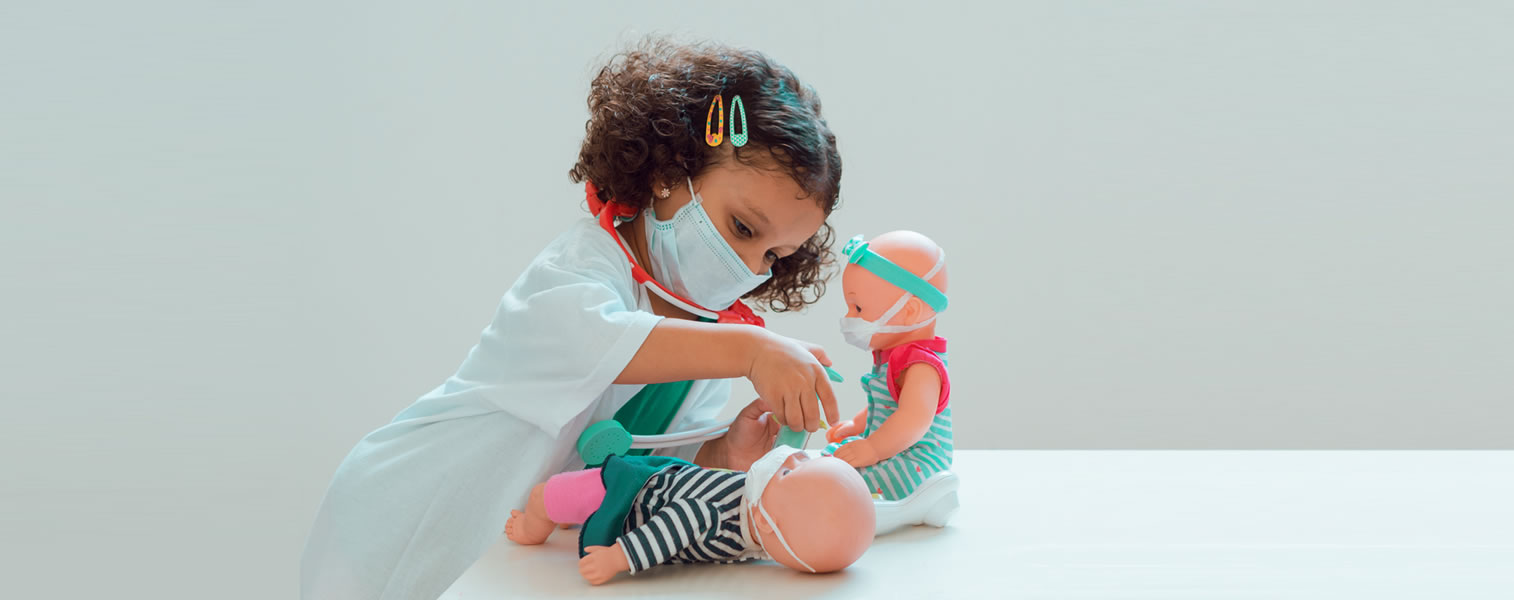The impact of COVID-19 on young children and what you can do
Published on Tuesday, 22 June 2021
Last updated on Monday, 21 June 2021

In the wake of the COVID-19 Children’s Health Queensland undertook research to learn how children aged one-five years and their families are coping with the pandemic.
COVID-19 Unmasked is a study that aims to understand:
- the different types of experiences young children and families are having
- how young children are coping with the many social and lifestyle changes
- how caregivers are coping and supporting their children during this time.
Findings:
Key findings showed that 80 per cent of children had good mental health, however, it’s important to note:
- 1 in 4 children are experiencing higher than average levels of anxiety symptoms
- 5–10 per cent of children may need specialised mental health support
- 1 in 5 parents are struggling with moderate to severe anxiety, depression or stress.
You can read the findings of the COVID-19 Unmasked survey under the ‘What we’ve learned so far’ tab (noting the survey is not currently active).
Based on the findings, the Queensland Government has put together a tips and useful links resource for early educators, which offers useful information for educators no matter where they are located.
How you can help:
While COVID-19 related stressors and difficulties are likely to be normal and/or transient for most, some children and parents may require higher levels of psychological support.
Early childhood educators have strong relationships with the children in their care and play an important role in making children feel safe. As an educator, there are a number of things you can do to support young children through this time (PDF). This includes:
Skills training
Undertake training programs on how to support the needs of young children during and after disruptive events such as natural disasters or pandemics.
Monitor for signs
Look out for changes in a child’s behaviour over time and for any signs they might be struggling. Speak to your team and parents about any concerns you may have.
Encourage reflection and expression
Talk about, read books and do activities related to COVID-19 and how children can manage their big feelings.
Practise relaxation and regulation
Incorporate yoga and mindfulness activities into the daily routine to encourage relaxation and self-regulation skills.
Self-care
Practise regular self-care to look after your own emotional wellbeing and mental health during this stressful time.
The COVID-19 Unmasked Resources tab provides links to a range of resources and fact sheets, including:
- Supporting young children during the pandemic (PDF)
- Supporting your mental health and wellbeing (for parents and carers) (PDF).
Read the reports
If you are interested in learning more about the study you can read the executive summaries for Early findings and recommendations (PDF) and Impact of the second wave in Australia on the mental health of young children and parents (PDF).
Full reports are also available under the ‘What we’ve learned so far’ tab .
Related Articles

COVID-19 Information for ECEC
COVID-19 Information for ECEC.

COVID-19 Support for the early childhood sector
COVID-19 Support for the early childhood sector.
